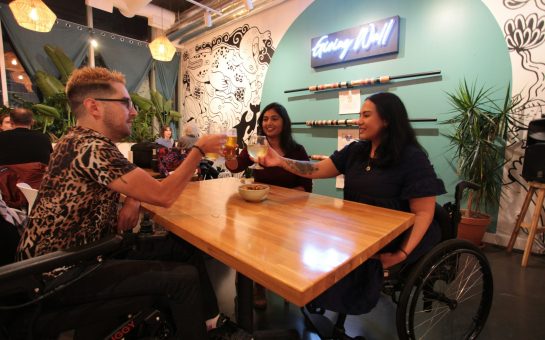You are TWICE as likely to smoke if you live in a deprived area – and a fifth of the country’s poorest areas are in Greater Manchester, a study has revealed.
Men in the most deprived areas are more than twice as likely to smoke (32.9%) compared with men in the least deprived areas at 14.3%, according to the Office of National Statistics study.
Although smoking rates among women were lower than those for men they were still significantly higher in the most deprived areas (26.1%) than the least deprived (10.2%).
A shocking nine Greater Manchester regions make up the 50 most deprived areas in England.
These include: Central in Bolton, Falinge in Rochdale, Harpurhey in Manchester, Balderstone in Rochdale, Langworthy in Salford and Coldhurst in Oldham.
The study also revealed that one in five adults (19.5%) currently smoke.
Deborah Arnott, chief executive of health charity ASH, said: “The ONS survey confirms the strong link between smoking and social deprivation.
“For several decades smoking has become increasingly concentrated among people on low incomes so it’s not surprising to find that smoking rates are much higher in socially deprived areas.
“Poorer smokers are just as likely as those who are well off to want to quit smoking but they find it harder to do because friends and family members are also more likely to smoke than people in wealthier places.
“This research shows the importance of targeting stop smoking services in areas of deprivation and particularly the need to help parents quit so that the next generation grows up with fewer triggers to start smoking.”
The rates at which people are giving up are also linked to social deprivation – of all people who had ever smoked (current and ex-smokers), men and women in the most deprived fifth of areas were much less likely to have given up smoking.
The largest smoking inequality between the most and least deprived areas occurred at middle age when men and women aged 45-54 experienced the greatest inequality in the rates of smoking between the most and least deprived areas; a 22.7 percentage point difference for men and 20.6 percentage point difference for women.
Andrea Crossfield, Chief Executive of Tobacco Free Futures, a social enterprise committed to tackling tobacco across Greater Manchester and the North West said: “Tobacco use is highest in our poorest communities and amongst our most troubled families.
“The poorer and more disadvantaged you are, the more likely you are to smoke and suffer smoking-related disease and early death.
“Children whose parents smoke are much more likely to grow up to smoke themselves and so, in our poorest communities, there has been an inter-generational cycle of smoking, leading to a vicious cycle of dependence on tobacco and poorer health.
“Yet we know that two thirds of people from our poorest communities want to quit.”
This suggests more action is needed to help smokers in the most disadvantaged areas to give up smoking.
Abbie Paton of Stop Smoking Manchester told MM: “Ours is a universal service which is offered to everyone but we do try to target those areas where smoking rates are not falling as quickly and try to place our outlets in areas of the most need.
“It is a positive thing that more and more people are now intending to stop smoking and this is true for people from all backgrounds and ages.
“This is especially true in the numbers of people who now recognise that smoke-free environments are very important around children.”
The harmful effects of smoking on health are well documented and the national yesterday’s No Smoking Day is designed to raise awareness of the health benefits of quitting smoking.
“Every penny spent on tobacco literally goes up in smoke,” said Andrea Crossfield. “More money spent on tobacco – and less on families and children – puts enormous pressure on poorer families’ budgets already hit hard by cost of living pressures and welfare reform.
“This can contribute to rises in personal debt. For instance, a low-income family earning £21,000 a year, where both parents smoke 20 cigarettes a day will spend A QUARTER of their total disposable income on tobacco or around £5,600 a year.
“Much good work is being done in partnership across Greater Manchester to address this, for instance by local authorities which have joined forces to try to stop the tobacco industry targeting young people through tobacco packaging and by stop smoking services.
“But greater investment is still needed to help young people in the most disadvantaged areas to understand the risks of smoking before they start and encourage and support those already addicted to quit.”
Earlier analysis by the Office for National Statistics has shown that the difference in rates of ‘Not Good’ health and disabling health conditions between more and less advantaged people also occurs during middle-age.
These statistics were analysed by the Health Analysis team at ONS using data from the Integrated Household Survey and published on the ONS website.
Image courtesy of Hublera, with thanks.



